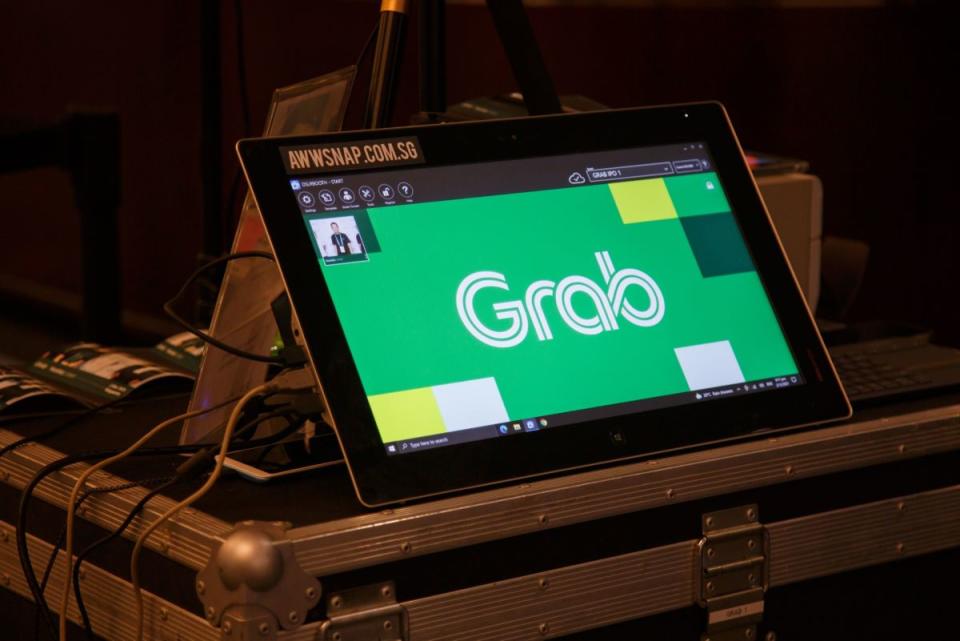Grab is CGS-CIMB’s top pick among Singapore land transport players amid mass layoff

The healthy competitive landscape should aid Grab and Gojek achieve further reduction in losses.
CGS-CIMB Research analyst Ong Khang Chuen is maintaining “add” on Grab with a target price of US$4.50 ($6.07), choosing the stock as its top pick within the Singapore point-to-point (P2P) transport sector.
CGS-CIMB sees Grab’s plan to cut 1,000 jobs as a slight positive, as Grab was less aggressive in headcount management last year compared to its peers Sea and GoTo.
In a memo, Grab CEO Anthony Tan cited the need to streamline for nimble execution and cost leadership so that Grab can sustainably offer more affordable services and deepen penetration into the masses. “Interestingly, rapid development of generative artificial intelligence was also cited which suggests it is helping raise software development efficiency, in our view,” says Ong.
He adds that the layoff came as a surprise, given Grab COO Alex Hungate’s comment back in September 2022 that the company does not expect mass layoffs. Instead, it was relying on a hiring freeze to reduce headcount.
“We think Grab’s decision could be based on plans by GoTo's new CEO to be more aggressive with reining in costs, as well as shareholder pressure on Grab to further slash expenses,” he adds.
Fundamentals wise, Ong notes that Grab has made good progress towards profitability, expecting the company to achieve adjusted ebitda breakeven by 3QFY2023 ended September — one quarter ahead of guidance even without the layoffs. Its gross merchandise volume (GMV) growth should also reaccelerate for on-demand services as ride hailing demand continues to recover while deliveries start to improve q-o-q in 2QFY2023 ended June.
Given the lack of clarity on the impacted job functions, CGS-CIMB has arrived at a wide range of estimates on the magnitude of cost cuts. Ong’s analysis of the annual reports suggest a minimum cost saving of about US$30 million per annum to up to about US$80 million-US$100 million per annum. The former assumes the cuts are purely for operations and support staff, while the latter assumes the percentage of job cuts are equally distributed across functions.
Shares in Grab closed 6 cents lower or 1.77% down on June 22 at US$3.33.
Players profitability to improve
For the overall P2P sector players, Ong highlights that ComfortDelGro C52 (CDG) announced that it will be imposing a platform fee of 70 cents per trip for rides booked via its CDG Zip app starting July 1. Separately, Gojek also announced that it will replace its fixed 70 cents platform fee with a tiered fee of up to $1 per trip from July 3, aside from raising the starting fares for its Premium, XL and XL Kids services.
Concurrently, all five taxi companies in Singapore as well as ride-hailing players Gojek and Tada were reported to extend their temporary fare surcharges to June 30, 2024. To note, Grab raised its platform fee to 70 cents from 30 cents previously on May 5.
CGS-CIMB’s channel checks show that the P2P transport fares in 2Q2023 have moderated slightly from the peak of 4Q2022/1Q2023, supported by further recovery in driver supply in Singapore.
Meanwhile, year-to-date trip demand remains strong, up 5% according to data by the Land Transport Authority. Ong believes these factors are potentially enabling operators to raise fixed fees without having to be overly concerned about demand impact.
“Given the record-high certificate of entitlement prices this year, we think the supply-demand imbalance for the sector is unlikely to ease meaningfully in the near term,” says Ong.
He estimates CDG’s platform fee to result in a revenue gain of about $5.6 million per quarter, assuming constant ride volumes. This is likely to flow directly to the bottomline as CDG has been absorbing the platform development costs for its CDG Zig app, Ong points out.
CGS-CIMB estimates 3% EPS upside to its FY2023 estimate as it had partially factored in monetisation increase by CDG previously. The analysts also expect the healthy competitive landscape to aid Grab and Gojek achieve further reduction in losses as they work towards their goal of adjusted ebitda breakeven by end-FY2023.
Ong has “hold” and “add” calls on CDG and GoTo, with target prices of $1.20 and IDR150 respectively.
As at 11.11am, shares in CDG and GoTo are trading at $1.17 and IDR115 respectively.
See Also:
Click here to stay updated with the Latest Business & Investment News in Singapore
CGS-CIMB downgrades Nanofilm to 'reduce' with lower TP of $1.13
Get in-depth insights from our expert contributors, and dive into financial and economic trends

 Yahoo Finance
Yahoo Finance 